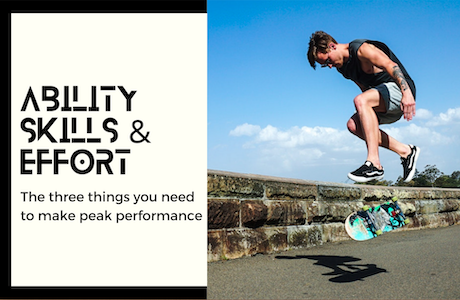Do you agree that in the photos above - the half-topless is more beautiful?
Is being half-topless add something to the woman's beautiful appearance or not?
Less is more is a phrase that has been popularized in recent years as a way to describe the idea that sometimes, having fewer possessions or simplifying our lives can lead to a better overall quality of life. The phrase is often attributed to the minimalist movement, which advocates for living with fewer possessions and a more simplistic approach to life.
On the contrary, Dolly Rebecca Parton, an award-winning American singer-songwriter for country music who in her career has composed over 3,000 songs, has a different view on less is more. On one occasion she was quoted as saying: ‘Some people say that less is more. But I think more is more.’ These words were spoken by an artist who has sold more than 100 million records worldwide. But an in-depth look at her career, we noticed that in the 1990s the sales of her albums flopped and became a total commercial failure. We do not know for sure what was the reason for that but this blog post is going to argue in favor of the idea that less is truly more.
Olivia's Story on Less is More
The following story affirms the simple concept that less is more. In the bustling city of London, there was a young woman named Olivia. Olivia was a successful businesswoman, and she had worked hard to build a successful career and accumulate a large number of material possessions.
Despite her success, Olivia found that she was often stressed and unhappy. She worked long hours and was constantly trying to keep up with the demands of her job and her busy lifestyle. She reached a point where she became a victim of recreational drugs.
One day, Olivia decided to take a break and go on a solo retreat in the countryside of St Albans, Hertfordshire in the vicinity of London. While there, she discovered the joys of living a simple life and began to understand the value of slowing down and focusing on what truly mattered.
Upon her return to the hustle and bustle of Oxford Street in London, Olivia decided to downsize her possessions and simplify her life for the better. She sold her large city home and moved to a small cottage she bought in the countryside of St Albans, Hertfordshire, where she was able to focus on her passions and find a sense of peace and contentment. Still, happily ever after, she went on to live one of the fullest and most satisfying life that existed only in her imagination.
Olivia came to realize that sometimes, less really is more and that a simple life can lead to greater happiness and fulfillment.
The Background Story of Less is More:
Keith Schengili-Roberts, CC BY-SA 3.0 via Wikimedia Commons(Bust of Epicurus, from the Pergamon Museum, Berlin, Germany)
You’ve to understand that the concept of "less is more" is not a new one. In fact, the idea has been around for centuries and can be traced back to the ancient Greeks. One notable example of this concept can be seen in the works of the philosopher Epicurus, who lived in the 4th century BC.
Epicurus believed that the key to living a happy, fulfilling life was to focus on what truly mattered and to avoid unnecessary distractions. He argued that material possessions, wealth, and power were not the keys to happiness, and that true happiness could only be found by living a simple, virtuous life.
This idea is exemplified in one of Epicurus' famous quotes: "Do not spoil what you have by desiring what you have not; remember that what you now have was once among the things you only hoped for." This quote emphasizes the importance of being content with what we have and not constantly striving for more.
Less is More in the Context of Modern Architecture:
Another notable example of the concept of "less is more" can be seen in the work of the architect Ludwig Mies van der Rohe. Mies was a pioneer of the modernist movement in architecture, and his work is characterized by a focus on simplicity and minimalism.
One of architect Mies' most famous works is the Barcelona Pavilion, a building that was designed for the 1929 International Exposition in Barcelona. The Pavilion is a prime example of Mies' philosophy of "less is more," as it is characterized by a simple, uncluttered design and an emphasis on clean lines and geometric shapes.
The Pavilion has become an iconic example of modernist architecture, and its simple, minimalist design has had a lasting impact on the field. Mies' work serves as a testament to the idea that sometimes, less really is more.
The Wisdom of Less is more in the Bible:
Bringing the Bible into the discussion, we have one biblical example of the concept of "less is more" which can be found in the story of King Solomon. Solomon was known for his great wisdom and wealth and was said to be the wealthiest and most powerful king in the world at the time.
Despite his great wealth and power, Solomon recognized that these things were not the keys to true happiness and fulfillment. In the Book of Ecclesiastes 4:6 (NCB), Solomon writes "Better is one handful of peace of mind than two handfuls of toil and chasing after the wind." This quote highlights the idea that sometimes, less really is more, and that peace and contentment can also be found in simplicity.
Solomon's story serves as a reminder that material possessions and wealth are not the keys to happiness, and that sometimes, having less can lead to a more fulfilling life.
The Lord Jesus Christ didn't want to leave us guessing on what would be his teaching on whether more is more or less is more. He clearly expressed his view that in some instances, truly the idea of less is more holds true. His comment on the matter is found in the book of Luke 12:15, (NCB) It says “... ‘Be on your guard and avoid every kind of greed, for the quality of your life does not depend on the possession you have, however great they may be.’ “
Less is More in the Context of Internet Marketing:
Now let’s turn to the world of online marketing. With so much noise and clutter on the internet, a savvy internet marketer is advised to cut through the clutter and get straight to the point. That's why simple, concise messaging is key to online success. Just remember, it's not about saying more, it's about saying it better. So it is advised to keep it short and sweet and let your message do the talking. It’s the quality of the content that counts and not the quantity of the content.
Summing up: the concept of "less is more" has been around for centuries and has been espoused by philosophers, architects, and others who have recognized the value of simplicity. Whether it's in our material possessions or in the way we live our lives, the idea that less can be more holds true and can lead to a happier, joyous, and more fulfilling life in the long run.
Here's the interview where the award-winning singer-songwriter Dolly Parton while speaking to Knoxville News Sentinel commented on why she thinks - more is more!






















